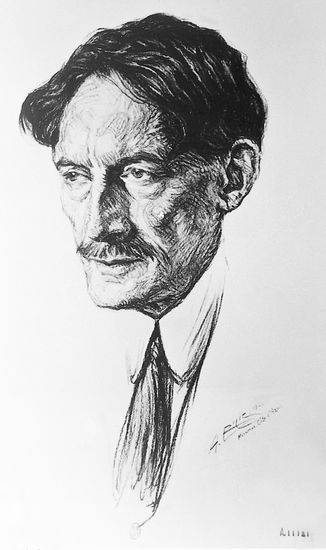Under Fire (1916), Ch. 24 - The Dawn
Kontext: The paralysis of cold was passing away from the knot of sufferers, though the light no longer made any progress over the great irregular marsh of the lower plain. The desolation proceeded, but not the day.
Then he who spoke sorrowfully, like a bell, said. "It'll be no good telling about it, eh? They wouldn't believe you; not out of malice or through liking to pull your leg, but because they couldn't. When you say to 'em later, if you live to say it, 'We were on a night job and we got shelled and we were very nearly drowned in mud,' they'll say, 'Ah!' And p'raps they'll say. 'You didn't have a very spicy time on the job.' And that's all. No one can know it. Only us."
"No, not even us, not even us!" some one cried.
"That's what I say, too. We shall forget — we're forgetting already, my boy!"
"We've seen too much to remember."
"And everything we've seen was too much. We're not made to hold it all. It takes its damned hook in all directions. We're too little to hold it."
"You're right, we shall forget! Not only the length of the big misery, which can't be calculated, as you say, ever since the beginning, but the marches that turn up the ground and turn it again, lacerating your feet and wearing out your bones under a load that seems to grow bigger in the sky, the exhaustion until you don't know your own name any more, the tramping and the inaction that grind you, the digging jobs that exceed your strength, the endless vigils when you fight against sleep and watch for an enemy who is everywhere in the night, the pillows of dung and lice — we shall forget not only those, but even the foul wounds of shells and machine-guns, the mines, the gas, and the counter-attacks. At those moments you're full of the excitement of reality, and you've some satisfaction. But all that wears off and goes away, you don't know how and you don't know where, and there's only the names left, only the words of it, like in a dispatch."
"That's true what he says," remarks a man, without moving his head in its pillory of mud. When I was on leave, I found I'd already jolly well forgotten what had happened to me before. There were some letters from me that I read over again just as if they were a book I was opening. And yet in spite of that, I've forgotten also all the pain I've had in the war. We're forgetting-machines. Men are things that think a little but chiefly forget. That's what we are."
"Then neither the other side nor us'll remember! So much misery all wasted!"
This point of view added to the abasement of these beings on the shore of the flood, like news of a greater disaster, and humiliated them still more.
"Ah, if one did remember!" cried some one.
"If we remembered," said another, "there wouldn't be any more war."
